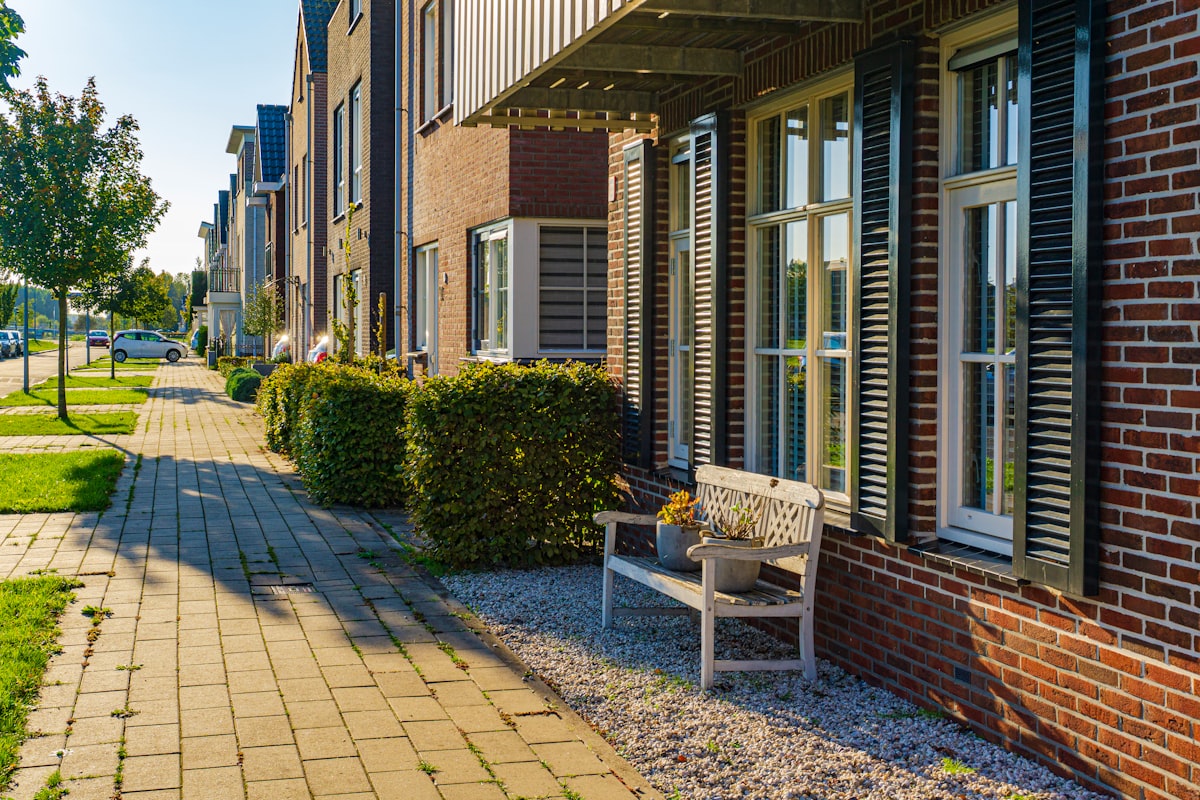The Hidden Costs of Owning Real Estate vs. Personal Property

Owning real estate and personal property are two significant investments that come with their own set of advantages and disadvantages. While owning a home or other real estate can provide long-term financial benefits, it also comes with hidden costs that are not always apparent.
Real estate refers to land and any buildings or other structures that are permanently attached to it. Personal property, on the other hand, refers to any movable property that is not real estate, such as cars, furniture, and other possessions. While real estate is often seen as a stable, long-term investment, it can also be expensive to own and maintain.
When comparing the costs associated with owning real estate versus personal property, there are several key factors to consider.
- Upfront Cost
First, let's look at the upfront costs. When purchasing personal property, the costs are typically straightforward and can be paid upfront or through financing. On the other hand, real estate purchases often require substantial upfront costs such as a down payment, closing costs, appraisal fees, and inspection fees. These costs can add up quickly and may be more than what you initially anticipated.
2. Property Taxes
One of the most significant hidden costs of owning real estate is property taxes. Property taxes are levied by local governments to fund public services such as schools, police, and fire departments. The amount of property tax that a homeowner must pay is based on the assessed value of the property, which can increase over time as the property appreciates. In some cases, property taxes can be significant, especially in areas with high property values. Homeowners may find themselves paying thousands of dollars in property taxes each year, which can be a significant financial burden.

3. Home Insurance:
Another hidden cost of owning real estate is homeowners insurance. Homeowners insurance is designed to protect homeowners in the event of damage or destruction to their property, but it can also be expensive. Homeowner's insurance premiums can vary widely depending on factors such as the age and condition of the property, the location, and the amount of coverage needed. Additionally, homeowners may be required to purchase additional insurance coverage for natural disasters such as floods, earthquakes, and hurricanes, which can add to the cost.
4. Maintenance and repairs
Maintenance and repairs are also significant hidden costs of owning real estate. Homes and other real estate properties require regular maintenance to keep them in good condition, which can include tasks such as painting, landscaping, and repairing or replacing appliances and systems. Additionally, unexpected repairs can arise at any time, such as a leaky roof or a broken HVAC system, which can be costly to repair or replace.
5. Cost of Utilities
Another hidden cost of owning real estate is the cost of utilities. Homeowners must pay for electricity, gas, water, and other utilities, which can be expensive, especially in areas with high utility rates.
6. Unexpected Expenses
Another hidden cost of owning real estate is the potential for unexpected expenses. For example, if you own a house, you may be responsible for repairing damage from natural disasters or other events that are not covered by insurance. You may also need to make repairs to the property to comply with local building codes or to make the property more marketable if you decide to sell it in the future.
While owning personal property also comes with costs, they are generally less significant than the hidden costs of owning real estate. Personal property, such as cars and furniture, may require maintenance and repairs, but these costs are typically lower than the costs associated with owning real estate. Additionally, personal property is not subject to property taxes, and insurance premiums are generally lower than those for real estate.
Differences between the Costs of Owning Personal Property vs Real Estate
One of the key differences is the level of control you have over these ongoing expenses. When you own personal property, you have more control over how much you spend on maintenance and repair costs, as well as when you choose to replace items. With real estate, however, many of these costs are outside of your control. For example, property taxes are determined by the local government and can increase significantly over time. Homeowner association fees are determined by the governing body of your community and can also increase without your input.
Moreover, it is important to consider the impact that owning real estate can have on your financial situation. While owning property can be a great investment in the long run, it can also be a significant drain on your finances in the short term. If you are not prepared for the ongoing expenses associated with owning real estate, it can put a strain on your budget and limit your financial flexibility.

The Impact of Owning a Real Estate on the Financial Situation
Owning real estate can have a significant impact on one's financial situation. Real estate is a valuable asset that can provide several financial benefits, including appreciation, cash flow, tax benefits, and equity.
- Appreciation: Firstly, real estate has the potential for appreciation, meaning that its value may increase over time. This can result in a substantial increase in wealth if the property is sold at a higher price than it was purchased for. Appreciation can be influenced by various factors, such as location, market demand, and economic conditions.
2. Cash Flow: Secondly, owning real estate can generate cash flow. If the property is rented out, the owner can receive rental income, which can cover the mortgage and other expenses, resulting in positive cash flow. This can provide additional income, which can be used to pay off debts or invest in other assets.
3. Tax Benefits: Thirdly, real estate provides tax benefits. Mortgage interest and property taxes are tax-deductible expenses, reducing the owner's taxable income. Additionally, capital gains tax may be deferred or reduced if the property is sold after being held for a certain period. These tax benefits can result in significant savings and increase the property's profitability.
4. Equity: Finally, owning real estate can increase equity. Equity refers to the value of the property minus the outstanding mortgage balance. As the owner makes mortgage payments, the equity increases, and the owner's net worth grows. Equity can be used to obtain loans or as a down payment for additional real estate investments.
However, owning real estate also comes with some financial risks. Property values can fluctuate, and market conditions can change, resulting in potential losses. Additionally, owning a property requires maintenance, repairs, and other expenses that can impact cash flow.

Conclusion
While owning real estate can be a smart long-term investment, it comes with significant hidden costs that are not always apparent. Property taxes, homeowners insurance, maintenance and repairs, utilities, and upfront costs are all factors that can make owning real estate expensive. On the other hand, personal property generally has fewer hidden costs and can be a more affordable option for those who do not want to take on the financial burden of owning real estate.





